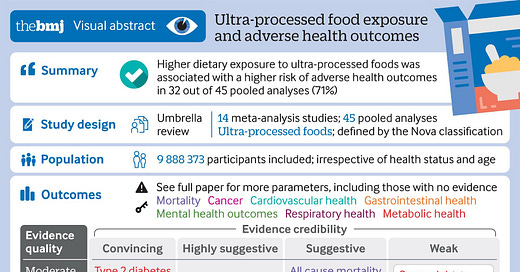Ultra-Processed Foods: Health Hazards Revealed
Recent research exposes dangers of industrialized fare. Choose health, not convenience.
New research is out regarding the health effects of eating a lot of ultra-processed foods, and it ain’t good. While we all strive for optimal health, it is difficult when we are bombarded with colorf…
Keep reading with a 7-day free trial
Subscribe to Karl Dickey's Freedom Vanguard to keep reading this post and get 7 days of free access to the full post archives.



